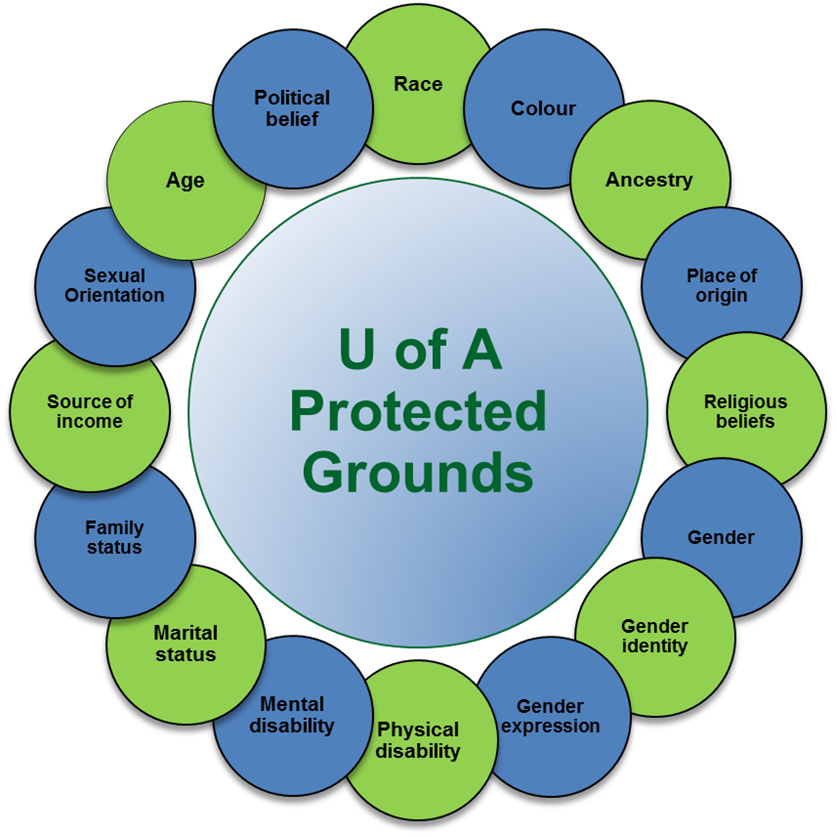
This week, we celebrated the 70th anniversary of the Universal Declaration of Human Rights. Why is it important that we pause to recognize this milestone? Because the declaration — and International Human Rights Day — remain as relevant today as they were in 1948.
Consider:
Since signing the United Declaration on Human Rights in 1948, the discourse and focus of human rights has expanded continually. What began with a concern about race, nationality, and religion now encompasses gender rights, rights for disabled persons, for LGBTQ2S+ communities, Indigenous peoples and more. As recently as 2017, gender identity and expression became protected grounds under human rights. Today at the U of A, we recognize diverse grounds for protection from discrimination.

While protection from discrimination is vital, human rights laws and policies help us to achieve something more: they signal our acknowledgment that people have historically experienced systematic forms of oppression, exclusion, and inequality. The 70th anniversary of the UN declaration reminds us not to take for granted the gains brought about through human rights movements, legislation, codes, and policy — and to remember that within recent history, peoples have been deprived of basic rights because of some aspect of their identity/personhood. Human rights compel us to acknowledge and remediate these historic and structural inequalities.
Like democracy, human rights must be a living thing: something that we all actively strive to protect, advocate for, and cherish. What does this look like at the U of A? Any time students, staff, or faculty accesses an accommodation, human rights are at work — and this is one area where the Office of Safe Disclosure and Human Rights helps to support our campus community.
Nor are human rights static, as we have seen these past 70 years. We continuously seek to expand and refine our commitment to the rights of all human beings. To support this commitment at the U of A, we provide a range of workshops, consultations, and education on human rights at the university — I invite you to reach out to the Office of Safe Disclosure and Human Rights, attend a workshop, and learn more. One way we can all contribute is by ensuring that we become aware of what human rights mean at the University of Alberta, including our commitment to an equitable, diverse, and inclusive community for all those who work and study here.
In honour of the 70th anniversary of the UN declaration, I encourage you to take a moment of pause, and to recognize and celebrate this momentous milestone. Ensuring that our individual and collective human rights continue to flourish — both at the U of A and beyond campus borders — is everyone’s responsibility.
Evelyn Hamdon
Evelyn Hamdon is an advisor in the Office of Safe Disclosure and Human Rights. She has a Ph.D. in Educational Policy Studies from the University of Alberta, and her research and practice are grounded in anti-oppression and de-colonial theories. She is the author of Islamophobia and the question of Muslim identity, as well as several book chapters and journal articles that examine forms of social exclusion at the nexus of gendered and racialized identities. Evelyn worked for more than two decades as an equity and inclusion educational and strategic consultant, including in post-secondary contexts, before coming to the U of A’s Office of Safe Disclosure and Human Rights. In her current role, she provides disclosure, education and consulting services to her colleagues relating to equity, diversity, inclusion, and human rights.